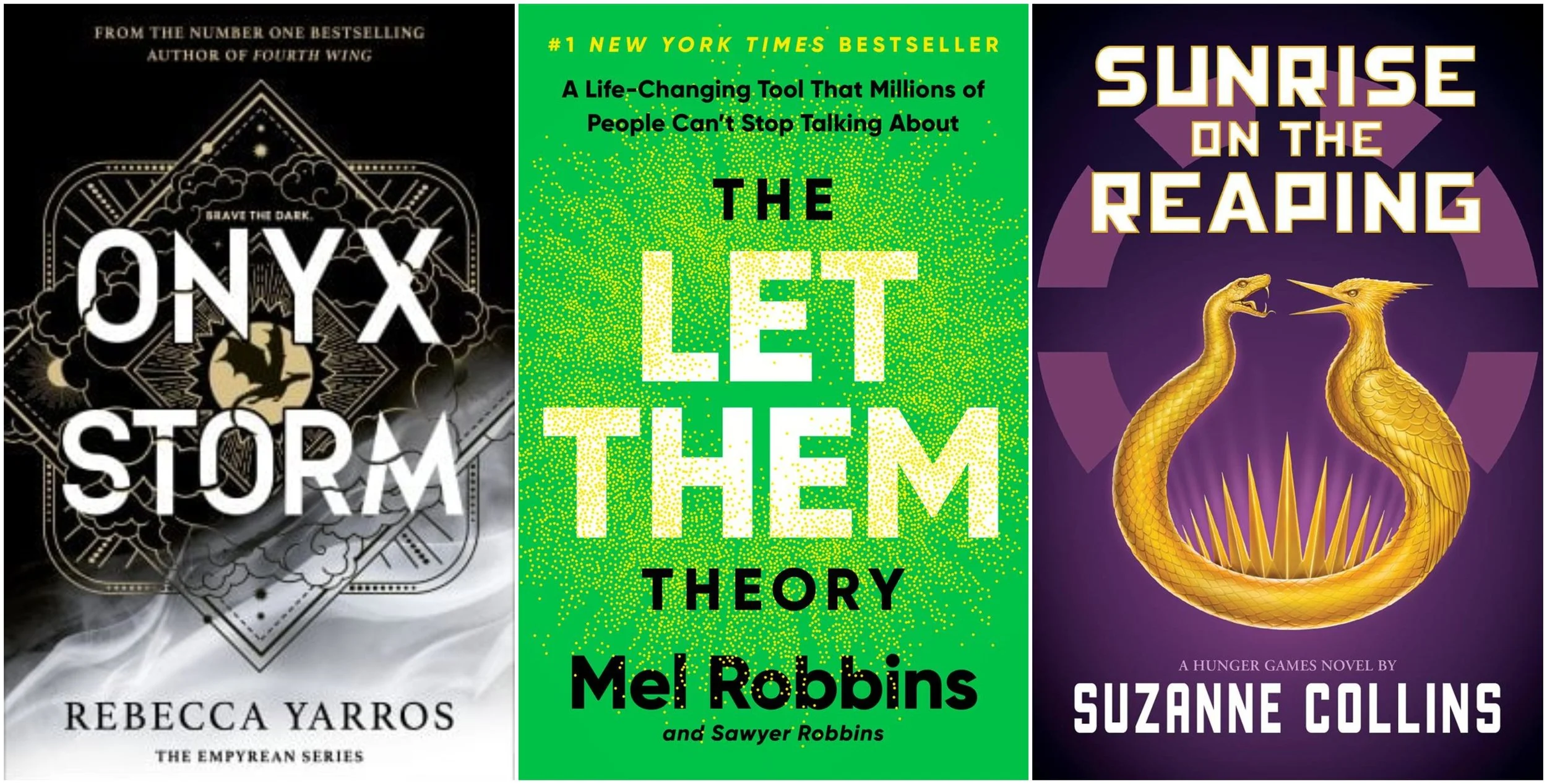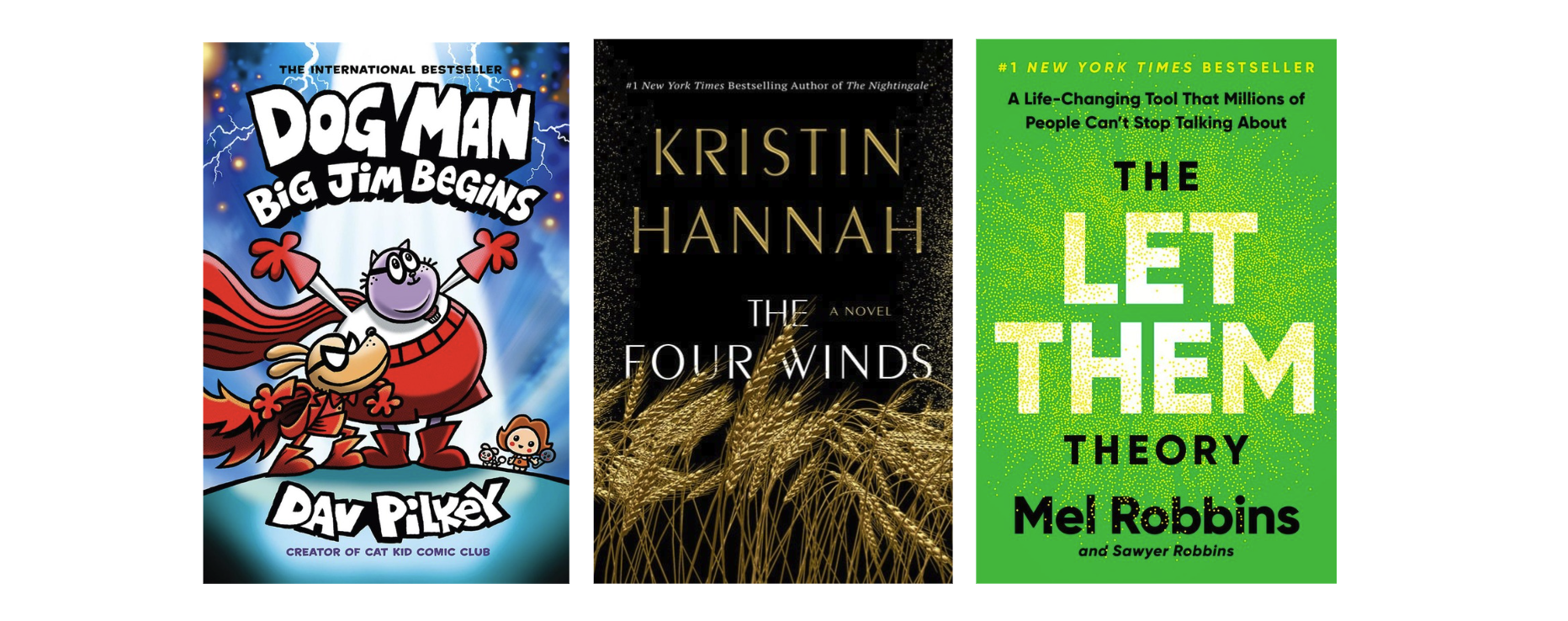As you may be aware, audiobook listening is on the rise. The share of Canadian readers who listened to an audiobook at least once in a given year continued to rise from 46% in 2020 to 57% in 2024 as tracked in BookNet’s Canadian Leisure & Reading survey.
We wanted to give audiobook listeners their moment and share a bit more about who they are and their listening preferences. We’ve used both published as well as previously unreleased data from our Canadian Leisure & Reading survey to paint the picture below.
The 2024 edition of this survey asked questions of 1,211 adult, English-speaking Canadians, about their leisure activities, with a particular focus on reading. Of that sample, 1,000 were considered readers, having read at least one book in 2024, and 570 were considered audiobook listeners having listened to at least one audiobook in 2024.
Demographics
Audiobook listeners skew younger than readers overall: 62% of audiobook listeners were under 45 in 2024 compared to 48% of all readers. Only 9% of all audiobook listeners were over 65, but 19% of all readers landed in this age category. However, audiobook listeners were more likely to be caregivers (either to parents/elders, to children, etc.) than all readers. Just over half of audiobook listeners said they were providing care to others (55%) as compared with 43% of all readers.
Audiobook listeners were just as likely to be men (51%) or women (49%) which is the same as the breakdown for all survey respondents. There was no significant differences between the annual household income for audiobook readers when compared with all readers, the majority made between $50,000 and $149,999 in 2024, and little variation in their education levels, just over half had a college or university education (57% for both).
Audiobook listeners were slightly less likely to identify as disabled (10%) than all readers (13%). They were slightly more likely to identify as an immigrant (23% for audiobook listeners and 18% for all readers) or as belonging to a religious minority (11% of audiobook listeners and 8% of all readers).
Audiobook listening
The largest share of audiobook listeners listen to their audiobooks once a week (14%). This is also the largest share for print books reader (23%) and ebook readers (17%). Audiobook listeners were most likely to belong to the group who listened to five or fewer books in 2024 (62%). When looking at all Canadian readers we see that 45% read five or fewer books in the year.
The percentage of readers who prefer audiobooks over other formats continues to rise — from 8% in 2020 to 15% in 2024. Perhaps they prefer the format because it allows them to multi-task while doing their reading: 78% of audiobook listeners said they listened to their books while doing other things (working, commuting/traveling, housework, etc.).
Audiobook listeners were mostly, but not exclusively, listening to digital audiobooks. And this continues to rise as well. In 2023, 28% only listened to digital audiobooks and 64% listened to a mix of physical and digital. However, in 2024, 35% only listened to digital audiobooks and 66% listened to a mix of physical and digital.
How and where are they listening to these audiobooks? Most are using their phones (47%) followed distantly by tablets (20%).
Perhaps surprisingly, audiobook listeners were using YouTube the most to listen to their books (30%), followed by Spotify (25%) in 2024.
Audiobook acquisition
This section uses data from the Canadian Reading & Leisure survey, as outlined above, but also from our Canadian Book Consumer survey. A quarterly survey that was fielded in March, June, September, and December 2024. All told, the study contains data from 4,212 Canadians, 2,045 of whom were considered book buyers.
As reported in the Canadian Book Consumer study, in 2024, 6% of books purchased by book buyers were audiobooks. Our Canadian Leisure & Reading survey found that 44% of audiobook listeners purchased their books in 2024.
Audiobook buyers purchased their audiobooks mainly from online retailers (e.g., Amazon/Kindle Unlimited, Audiobooks.com , iTunes, etc.) (18%), a subscription service (15%), a physical bookstore (6%), or a general retailer (e.g., Costco, Walmart, Shoppers Drug Mart, grocery store, etc.) (5%).
The largest share of audiobook listeners spent between $1 and $49 on audiobooks in 2024 and the average price they paid for an audiobook was $13.40.
Audiobook buyers were less likely to pay full price for their books (40%) than paperback (65%), hardcover (62%), or ebook (47%) buyers. Perhaps that’s part of the reason they were more likely than print book readers to say they got good value at the price they paid (39% of audiobook listeners agreed compared with 36% of print book readers).
Just over half of audiobook listeners acquired their books for free (55%). The free books were most likely to have come from the public library (19%), a free internet site (e.g., LibriVox, YouTube, public domain, etc.) (18%), or they were received audiobooks as gifts (7%). And overall, 10% of all books borrowed by Canadians in 2024 were audiobooks.
Data provided by OverDrive, the world’s leading digital reading platform for libraries and schools, offers more insight into the library circulation audiobooks in Canada. In 2024, 38% of all digital library checkouts were audiobooks. This figure has increased 133% since 2019.
Subjects
Audiobook listeners had no noticeable differences in preference for their top-level subjects than all readers did. Adult fiction was most popular (73%), followed by adult non-fiction (56%), young adult books (15%), and lastly children’s books (14%).
If we drill down to the genres, audiobook listeners were slightly more likely than print and ebook readers to listen to romance, fantasy, and science fiction books and slightly less likely to listen to historical fiction.
As for the last two years in a row, history remained the most popular non-fiction genre for readers of all formats. True crime was the second most popular genre for audiobook listeners, but it has been growing steadily since 2019 when 27% of respondents listened to that genre to 32% in 2024.
Audiobook listeners were slightly more likely than all readers to listen to health or fitness titles, self-help, and business books and slightly less likely to listen to history or cookbook titles.
If you’d like to know more about the preferences of Canadian readers, you can read the whole report for free: Canadian Leisure & Reading Study 2024. Or check out our other (also free) report, Canadian Book Consumer Study 2024, for more about the buying and borrowing behaviours of Canadians.


















Insights into romance trends and the performance of Heated Rivalry.